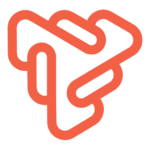A well-optimized career page is crucial for attracting top talent. It’s not just about creating a visually appealing page; it’s about making it easily discoverable by potential candidates. Here’s a detailed guide on how to optimize your career page for SEO:
Understanding the Importance of SEO for Your Career Page
Before diving into the strategies, let’s understand why SEO matters for your career page:
- Increased Visibility: A well-optimized page ranks higher in search engine results, making it easier for potential candidates to find you.
- Attracting Qualified Candidates: By targeting specific keywords, you can attract candidates who are actively searching for roles in your industry.
- Enhanced Employer Branding: A strong online presence, including a well-optimized career page, contributes to a positive employer brand.

SEO Tips for Your Career Page
1. Keyword Research
- Identify Relevant Keywords: Use keyword research tools to find keywords related to your industry, job titles, and company. For instance, “software engineer jobs,” “marketing careers,” or “remote work opportunities.”
- Focus on Long-Tail Keywords: Target specific long-tail keywords like “entry-level data analyst positions in New York” to attract highly qualified candidates.
2. On-Page Optimization
- Title Tags and Meta Descriptions: Create compelling and keyword-rich title tags and meta descriptions for your career page. These are the snippets that appear in search results.
- Headings (H1, H2, H3): Use clear and concise headings to structure your content. The main job title or a variation should be in the H1 tag.
- URL Structure: Create a clean and keyword-rich URL for your career page, such as “/careers” or “/join-our-team.”
3. Content Optimization
- Detailed Job Descriptions: Write unique and informative job descriptions that include relevant keywords. Avoid duplicate content.
- Highlight Company Culture: Showcase your company culture, mission, and values to attract candidates who align with your company.
- Leverage Employee Testimonials: Incorporate employee testimonials to add authenticity and humanize your company.
4. Mobile Optimization
- Responsive Design: Ensure your career page is fully responsive and displays correctly on all devices.
- Fast Load Times: Optimize images, minimize code, and use a CDN to improve page load speed.
5. Schema Markup
- Job Posting Schema: Implement schema markup for job postings to help search engines understand the job details and display rich snippets.
- Company Information Schema: Add schema markup for your company information to provide additional context.
6. Internal Linking
- Connect Related Content: Link to relevant blog posts, employee stories, or other job openings to improve user experience and SEO.
- Link from Other Pages: Ensure other pages on your website link to the career page with descriptive anchor text.
7. User Experience (UX)
- Clear Navigation: Make it easy for users to find job listings and apply.
- Engaging Media: Use high-quality images, videos, and interactive elements to enhance user experience.
8. Local SEO (If Applicable)
- Location-Specific Keywords: If you’re hiring in specific locations, use location-specific keywords.
- Google My Business: Optimize your Google My Business listing with relevant information and a link to your career page.
9. Regular Updates
- Fresh Content: Regularly update your career page with new job postings and company news.
- Remove Outdated Listings: Delete expired job postings to avoid confusion.
10. Link Building
- Earn Backlinks: Build relationships with industry influencers and websites to earn backlinks to your career page.
- Encourage Social Sharing: Promote job openings on social media to increase visibility.
11. Analytics and Tracking
- Monitor Performance: Use Google Analytics to track pageviews, bounce rates, and conversion rates.
- Conversion Tracking: Set up conversion tracking to measure the effectiveness of your career page.
By implementing SEO best practices on your career page, you are not only enhancing its visibility but also ensuring that it attracts highly qualified candidates who are the perfect fit for your organization. Optimizing your career page with relevant keywords, meta descriptions, and structured data can significantly boost its ranking on search engine results pages, making it easier for job seekers to discover your opportunities.
Moreover, a well-optimized career page can be a powerful tool to strengthen your overall recruitment strategy. It can help you reach a wider audience of potential candidates, increase the quality of applications you receive, and ultimately streamline your hiring process. By providing valuable and engaging content, such as employee testimonials, company culture insights, and detailed job descriptions, you can effectively showcase your employer brand and attract top talent to your organization.
By investing time and effort into optimizing your career page for search engines, you are not only improving your chances of finding the right candidates but also positioning your organization as an employer of choice in the eyes of job seekers.
